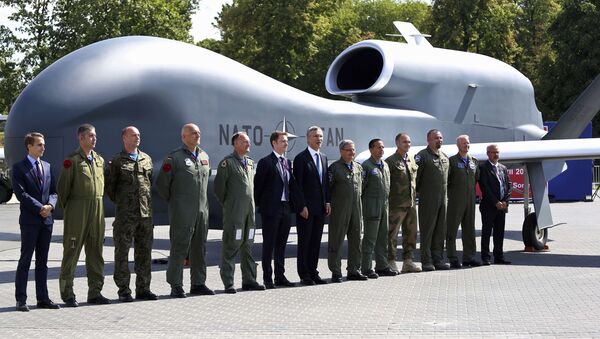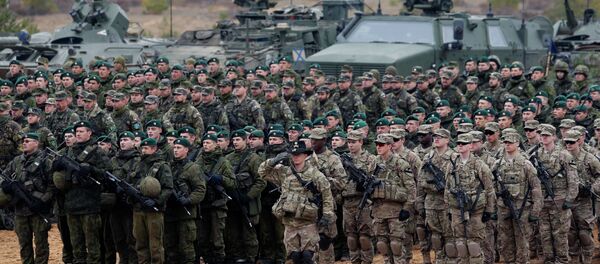WARSAW (Sputnik) — According to the official, the leaders, among other issues, discussed the implications of Russia's supposedly evolving anti-access and aerial denial capabilities "that have been building up in Kamchatka peninsula, in Kaliningrad, in Crimea and lately in Syria."
"NATO has agreed on a range of measures and capabilities required to insure NATO's unconstrained freedom of action and movement in allies' national territories and airspace as well as in international airspace and water to counter potential threat and to clearly communicate in order to avoid misunderstanding and miscalculation and the unintended escalation," told reporters at a background briefing in the framework of the Alliance’s summit in Warsaw.
"It is clear that the nuclear capabilities of the United States, the United Kingdom and France remain an essential component of NATO deterrence and defense posture. The summit communique is very clear in expressing the fundamental purpose of NATO's nuclear capabilities which is to preserve peace and to deter aggression," the official said.
NATO reports the first real increase in defense spending in 2015 and expects an even bigger increase in the future, a senior NATO official said.
"Heads of states and governments are discussing, as we speak, the progress that has been made on defense investment. Since they agreed defense investment pledge at the summit in Wales, last year we saw the first real increase in defense spending for many years and this year we expect an even bigger increase."
Since 2014, the alliance has been building up its military presence in Europe, especially in Eastern European countries neighboring Russia, using Moscow’s alleged interference in the Ukrainian conflict as a pretext. Moscow has repeatedly denied the claims and warned NATO that the military buildup on Russia’s borders is provocative and threatens the existing strategic balance of power.



